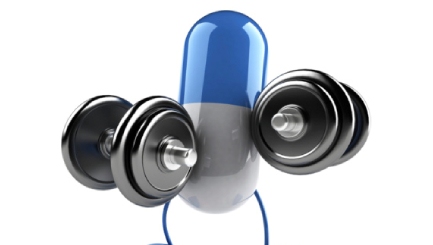Should I Use Supplements To Aid My Workout?
 The use of vitamins, minerals and supplements for sports nutrition is a topic still hotly contested by sportspeople and nutritionists alike. One big school of thought, associated with naturopathy and the wellness benefits of food cures say ‘No’, sports supplements are unnecessary. Their argument seems to rest on the idea that you should get all the nutrition you need in the natural way; from food. However, if an athlete’s nutritional demands truly outstrip the supply, the scenario should be judged differently. Those in serious athletic training may find it impossible to get all the nutrients they need from food alone. After all, one who wants to push their performance far above the average will find that the dietary options may fail to support that. This is especially the case when you look at the questionable quality of food produced in the West. Nutrients are a vital part of training and many sportspeople feel they must ensure a full intake in order to advance in their chosen activity.
The use of vitamins, minerals and supplements for sports nutrition is a topic still hotly contested by sportspeople and nutritionists alike. One big school of thought, associated with naturopathy and the wellness benefits of food cures say ‘No’, sports supplements are unnecessary. Their argument seems to rest on the idea that you should get all the nutrition you need in the natural way; from food. However, if an athlete’s nutritional demands truly outstrip the supply, the scenario should be judged differently. Those in serious athletic training may find it impossible to get all the nutrients they need from food alone. After all, one who wants to push their performance far above the average will find that the dietary options may fail to support that. This is especially the case when you look at the questionable quality of food produced in the West. Nutrients are a vital part of training and many sportspeople feel they must ensure a full intake in order to advance in their chosen activity.
Popular sports supplements include the following:
Whey – Originally a waste product from cheese-making, whey is now one of the leading protein supplements. Whey can be purchased very cheaply and is a simple option to support your workout routine.
Protein Powders – Other protein powders include casein and soya. These supplements come in the form of powders to be mixed into drinks. Protein supplements are most effective when taken after exercise, as this is the time when the body’s metabolic process is at its peak.
Creatine – Creatine is now lauded in all quarters as the performance aid that is proven to work. However, it’s important to remember that creatine is not a substitute for hard work or a healthy diet. The product actually works at optimum when taken in the frame of an already existing exercise routine. In other words, it will help advance your peak only when have already achieved it naturally.
L-Glutamine – L-glutamine is still the subject of debate, and has not yet been fully approved by research agencies. It is basically a non-essential amino acid that may provide benefits during times of great metabolic stress. Anecdotally, it seems to provide a good support to those undertaking exceptionally strenuous exercise or bodybuilding activity. It may be worth giving it a try as an energy booster at times when you are stretching yourself to capacity, especially if you are feeling run down, or need a boost before a workout.
Vitamins and Multivitamins – Nobody would argue that one’s first priority is to establish a diet that gives you all the nutrients you need. Ideally, you wouldn’t need to take extra vitamins unless you aren’t getting a wide range for some reason – such may be the case for vegetarians, or women with an iron deficiency. Bodybuilders should not need to incorporate these supplements unless they are unable to expand their diet to include all the necessary elements.


Comments are closed.